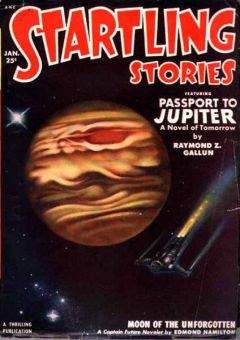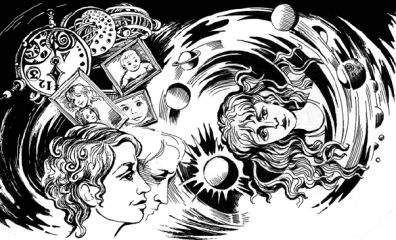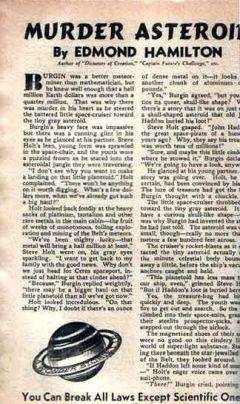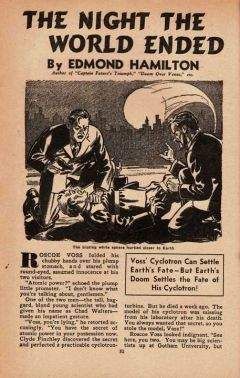Somerset Maugham - Sixty-Five Short Stories

Скачивание начинается... Если скачивание не началось автоматически, пожалуйста нажмите на эту ссылку.
Жалоба
Напишите нам, и мы в срочном порядке примем меры.
Описание книги "Sixty-Five Short Stories"
Описание и краткое содержание "Sixty-Five Short Stories" читать бесплатно онлайн.
Winter made the necessary arrangements and after dinner we went down to the water front. The ship's boat was waiting for us and we rowed out. The schooner was anchored some way across the harbour, not far from the breakwater. We came alongside, and I heard the sound of a ukulele. We clambered up the ladder.
'I guess he's in the cabin,' said Winter, leading the way.
It was a small cabin, bedraggled and dirty, with a table against one side and a broad bench all round upon which slept, I supposed, such passengers as were ill-advised enough to travel in such a ship. A petroleum lamp gave a dim light. The ukulele was being played by a native girl and Butler was lolling on the seat, half lying, with his head on her shoulder and an arm round her waist.
'Don't let us disturb you, Captain,' said Winter, facetiously.
'Come right in,' said Butler, getting up and shaking hands with us. 'What'll you have?'
It was a warm night, and through the open door you saw countless stars in a heaven that was still almost blue. Captain Butler wore a sleeveless undershirt, showing his fat white arms, and a pair of incredibly dirty trousers. His feet were bare, but on his curly head he wore a very old, a very shapeless felt hat.
'Let me introduce you to my girl. Ain't she a peach?'
We shook hands with a very pretty person. She was a good deal taller than the captain, and even the Mother Hubbard, which the missionaries of a past generation had, in the interests of decency, forced on the unwilling natives, could not conceal the beauty of her form. One could not but suspect that age would burden her with a certain corpulence, but now she was graceful and alert. Her brown skin had an exquisite translucency and her eyes were magnificent. Her black hair, very thick and rich, was coiled round her head in a massive plait. When she smiled in a greeting that was charmingly natural, she showed teeth that were small, even, and white. She was certainly a most attractive creature. It was easy to see that the captain was madly in love with her. He could not take his eyes off her; he wanted to touch her all the time. That was very easy to understand; but what seemed to me stranger was that the girl was apparently in love with him. There was a light in her eyes that was unmistakable, and her lips were slightly parted as though in a sigh of desire. It was thrilling. It was even a little moving, and I could not help feeling somewhat in the way. What had a stranger to do with this lovesick pair? I wished that Winter had not brought me. And it seemed to me that the dingy cabin was transfigured and now it seemed a fit and proper scene for such an extremity of passion. I thought I should never forget that schooner in the harbour of Honolulu, crowded with shipping, and yet, under the immensity of the starry sky, remote from all the world. I liked to think of those lovers sailing off together in the night over the empty spaces of the Pacific from one green, hilly island to another. A faint breeze of romance softly fanned my cheek.
And yet Butler was the last man in the world with whom you would have associated romance, and it was hard to see what there was in him to arouse love. In the clothes he wore now he looked podgier than ever, and his round spectacles gave his round face the look of a prim cherub. He suggested rather a curate who had gone to the dogs. His conversation was peppered with the quaintest Americanisms, and it is because I despair of reproducing these that, at whatever loss of vividness, I mean to narrate the story he told me a little later in my own words. Moreover he was unable to frame a sentence without an oath, though a good-natured one, and his speech, albeit offensive only to prudish ears, in print would seem coarse. He was a mirth-loving man, and perhaps that accounted not a little for his successful amours; since women, for the most part frivolous creatures, are excessively bored by the seriousness with which men treat them, and they can seldom resist the buffoon who makes them laugh. Their sense of humour is crude, Diana of Ephesus is always prepared to fling prudence to the winds for the red-nosed comedian who sits on his hat. I realized that Captain Butler had charm. If I had not known the tragic story of the shipwreck I should have thought he had never had a care in his life.
Our host had rung the bell on our entrance and now a Chinese cook came in with more glasses and several bottles of soda. The whisky and the captain's empty glass stood already on the table. But when I saw the Chinese I positively started, for he was certainly the ugliest man I had ever seen. He was very short, but thick-set, and he had a bad limp. He wore a singlet and a pair of trousers that had been white, but were now filthy, and, perched on a shock of bristly, grey hair, an old tweed deer-stalker. It would have been grotesque on any Chinese, but on him it was outrageous. His broad, square face was very flat as though it had been bashed in by a mighty fist, and it was deeply pitted with smallpox; but the most revolting thing in him was a very pronounced harelip which had never been operated on, so that his upper lip, cleft, went up in an angle to his nose, and in the opening was a huge yellow fang. It was horrible. He came in with the end of a cigarette at the corner of his mouth and this, I do not know why, gave him a devilish expression.
He poured out the whisky and opened a bottle of soda.
'Don't drown it, John,' said the captain.
He said nothing, but handed a glass to each of us. Then he went out.
'I saw you lookin' at my Chink,' said Butler, with a grin on his fat, shining face.
'I should hate to meet him on a dark night,' I said.
'He sure is homely,' said the captain, and for some reason he seemed to say it with a peculiar satisfaction. 'But he's fine for one thing, I'll tell the world; you just have to have a drink every time you look at him.'
But my eyes fell on a calabash that hung against the wall over the table, and I got up to look at it. I had been hunting for an old one and this was better than any I had seen outside the museum.
'It was given me by a chief over on one of the islands,' said the captain, watching me. 'I done him a good turn and he wanted to give me something good.'
'He certainly did,' I answered.
I was wondering whether I could discreetly make Captain Butler an offer for it, I could not imagine that he set any store on such an article, when, as though he read my thoughts, he said:
'I wouldn't sell that for ten thousand dollars.'
'I guess not,' said Winter. 'It would be a crime to sell it.'
'Why?' I asked.
'That comes into the story,' returned Winter. 'Doesn't it, Captain?'
'It surely does.'
'Let's hear it then.'
'The night's young yet,' he answered.
The night distinctly lost its youth before he satisfied my curiosity, and meanwhile we drank a great deal too much whisky while Captain Butler narrated his experiences of San Francisco in the old days and of the South Seas. At last the girl fell asleep. She lay curled up on the seat, with her face on her brown arm, and her bosom rose and fell gently with her breathing. In sleep she looked sullen, but darkly beautiful.
He had found her on one of the islands in the group among which, whenever there was cargo to be got, he wandered with his crazy old schooner. The Kanakas have little love for work, and the laborious Chinese, the cunning Japs, have taken the trade out of their hands. Her father had a strip of land on which he grew taro and bananas and he had a boat in which he went fishing. He was vaguely related to the mate of the schooner, and it was he who took Captain Butler up to the shabby little frame house to spend an idle evening. They took a bottle of whisky with them and the ukulele. The captain was not a shy man and when he saw a pretty girl he made love to her. He could speak the native language fluently and it was not long before he had overcome the girl's timidity. They spent the evening singing and dancing, and by the end of it she was sitting by his side and he had his arm round her waist. It happened that they were delayed on the island for several days and the captain, at no time a man to hurry, made no effort to shorten his stay. He was very comfortable in the snug little harbour and life was long. He had a swim round his ship in the morning and another in the evening. There was a chandler's shop on the water front where sailormen could get a drink of whisky, and he spent the best part of the day there, playing cribbage with the half-caste who owned it. At night the mate and he went up to the house where the pretty girl lived and they sang a song or two and told stories. It was the girl's father who suggested that he should take her away with him. They discussed the matter in a friendly fashion, while the girl, nestling against the captain, urged him by the pressure of her hands and her soft smiling glances. He had taken a fancy to her and he was a domestic man. He was a little dull sometimes at sea and it would be very pleasant to have a pretty little creature like that about the old ship. He was of a practical turn too, and he recognized that it would be useful to have someone around to darn his socks and look after his linen. He was tired of having his things washed by a Chink who tore everything to pieces; the natives washed much better, and now and then when the captain went ashore at Honolulu he liked to cut a dash in a smart duck suit. It was only a matter of arranging a price. The father wanted two hundred and fifty dollars, and the captain, never a thrifty man, could not put his hand on such a sum. But he was a generous one, and with the girl's soft face against his, he was not inclined to haggle. He offered to give a hundred and fifty dollars there and then and another hundred in three months. There was a good deal of argument and the parties could not come to any agreement that night, but the idea had fired the captain, and he could not sleep as well as usual. He kept dreaming of the lovely girl and each time he awoke it was with the pressure of her soft, sensual lips on his. He cursed himself in the morning, because a bad night at poker the last time he was at Honolulu had left him so short of ready money. And if the night before he had been in love with the girl, this morning he was crazy about her.
'See here, Bananas,' he said to the mate, 'I've got to have that girl. You go and tell the old man I'll bring the dough up tonight and she can get fixed up. I figure we'll be ready to sail at dawn.'
I have no idea why the mate was known by that eccentric name. He was called Wheeler, but though he had that English surname there was not a drop of white blood in him. He was a tall man, and well-made though inclined to stoutness, but much darker than is usual in Hawaii. He was no longer young, and his crisply curling, thick hair was grey. His upper front teeth were cased in gold. He was very proud of them. He had a marked squint and this gave him a saturnine expression. The captain, who was fond of a joke, found in it a constant source of humour and hesitated the less to rally him on the defect because he realized that the mate was sensitive about it. Bananas, unlike most of the natives, was a taciturn fellow and Captain Butler would have disliked him if it had been possible for a man of his good nature to dislike anyone. He liked to be at sea with someone he could talk to, he was a chatty, sociable creature, and it was enough to drive a missionary to drink to live there day after day with a chap who never opened his mouth. He did his best to wake the mate up, that is to say, he chaffed him without mercy, but it was poor fun to laugh by oneself, and he came to the conclusion that, drunk or sober, Bananas was no fit companion for a white man. But he was a good seaman and the captain was shrewd enough to know the value of a mate he could trust. It was not rare for him to come aboard, when they were sailing, fit for nothing but to fall into his bunk, and it was worth something to know that he could stay there till he had slept his liquor off, since Bananas could be relied on. But he was an unsociable devil, and it would be a treat to have someone he could talk to. That girl would be fine. Besides, he wouldn't be so likely to get drunk when he went ashore if he knew there was a little girl waiting for him when he came on board again.
He went to his friend the chandler and over a peg of gin asked him for a loan. There were one or two useful things a ship's captain could do for a ship's chandler, and after a quarter of an hour's conversation in low tones (there is no object in letting all and sundry know your business), the captain crammed a wad of notes in his hip-pocket, and that night, when he went back to his ship the girl went with him.
What Captain Butler, seeking for reasons to do what he had already made up his mind to, had anticipated, actually came to pass. He did not give up drinking, but he ceased to drink to excess. An evening with the boys, when he had been away from town two or three weeks, was pleasant enough, but it was pleasant too to get back to his little girl; he thought of her, sleeping so softly, and how, when he got into his cabin and leaned over her, she would open her eyes lazily and stretch out her arms for him: it was as good as a full hand. He found he was saving money, and since he was a generous man he did the right thing by the little girl: he gave her some silver-backed brushes for her long hair, and a gold chain, and a reconstructed ruby for her finger. Gee, but it was good to be alive.
A year went by, a whole year, and he was not tired of her yet. He was not a man who analysed his feelings, but this was so surprising that it forced itself upon his attention. There must be something very wonderful about that girl. He couldn't help seeing that he was more wrapped up in her than ever, and sometimes the thought entered his mind that it might not be a bad thing if he married her.
Then, one day the mate did not come in to dinner or to tea. Butler did not bother himself about his absence at the first meal, but at the second he asked the Chinese cook:
'Where's the mate? He no come tea?'
'No wantchee,' said the Chink.
'He ain't sick?'
'No savvy.'
Next day Bananas turned up again, but he was more sullen than ever, and after dinner the captain asked the girl what was the matter with him. She smiled and shrugged her pretty shoulders. She told the captain that Bananas had taken a fancy to her and he was sore because she had told him off. The captain was a good-humoured man and he was not of a jealous nature; it struck him as exceeding funny that Bananas should be in love. A man who had a squint like that had a precious poor chance. When tea came round he chaffed him gaily. He pretended to speak in the air, so that the mate should not be certain that he knew anything, but he dealt him some pretty shrewd blows. The girl did not think him as funny as he thought himself, and afterwards she begged him to say nothing more. He was surprised at her seriousness. She told him he did not know her people. When their passion was aroused they were capable of anything. She was a little frightened. This was so absurd to him that he laughed heartily.
'If he comes bothering round you, you just threaten to tell me. That'll fix him.'
'Better fire him, I think.'
'Not on your sweet life. I know a good sailor when I see one. But if he don't leave you alone I'll give him the worst licking he's ever had.'
Perhaps the girl had a wisdom unusual in her sex. She knew that it was useless to argue with a man when his mind was made up, for it only increased his stubbornness, and she held her peace. And now on the shabby schooner, threading her way across the silent sea, among those lovely islands, was enacted a dark, tense drama of which the fat little captain remained entirely ignorant. The girl's resistance fired Bananas so that he ceased to be a man, but was simply blind desire. He did not make love to her gently or gaily, but with a black and savage ferocity. Her contempt now was changed to hatred and when he besought her she answered him with bitter, angry taunts. But the struggle went on silently, and when the captain asked her after a little while whether Bananas was bothering her, she lied.
Подписывайтесь на наши страницы в социальных сетях.
Будьте в курсе последних книжных новинок, комментируйте, обсуждайте. Мы ждём Вас!
Похожие книги на "Sixty-Five Short Stories"
Книги похожие на "Sixty-Five Short Stories" читать онлайн или скачать бесплатно полные версии.
Мы рекомендуем Вам зарегистрироваться либо войти на сайт под своим именем.
Отзывы о "Somerset Maugham - Sixty-Five Short Stories"
Отзывы читателей о книге "Sixty-Five Short Stories", комментарии и мнения людей о произведении.














